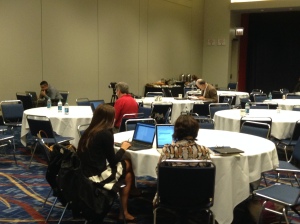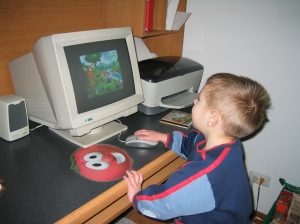Looking for fresh poetry to read or to share with others? Of course, give these new faces credit. They’ve worked hard, as poets do. Support emerging poets and get to know them before everyone else does.
Jean Bansemer
We’re listing poets in alphabetical order. Jean rediscovered poetry during the 2020 pandemic and has since written two books about life in America as a wife, mother, and business woman. Preview her work and get to know her on Twitter, Facebook, or Goodreads. “His Uniforms,” is from her latest book and is a sentimental poem– a tear-jerker for Memorial Day, Veteran’s Day, July 4, military graduations or at graduations, in general. It appears in Along Came 22: Poems and Short Stories about Love, War, and Silliness.

Victoria Chang
She’s not exactly new to poetry, but her book, The Trees Witness Everything was published by Copper Canyon Press and Corsair Books in the U.K. in 2022. Follow her on Twitter and enjoy her simple, but powerful expressions!

Stephanie Niu
Fall into images of water and life flowing symbiotically. Niu’s chapbook She Has Dreamt Again of Water came out in March 2022 and has already won a couple prizes. Water Dreams will take you away. Reach out to Stephanie on Twitter.
Water Dreams
In the dream there is a whale shark. I hold her fin, and we quietly agree where to go. The water is not cold. Then I swim breast stroke in the living room,the couch falling away below. My mother says water dreamsare auspicious. That night she dreamed of slaying a snake, cutting its long body like a carrot. I feel her pride for me swell, even at this. The lucky animals migrating from her dreams to mine. Her relief that I can conjure, even in sleep, what she cannot give me—good rest, good luck, an ocean to dream in. But she is always swelling. She is always in motion, urgent for something she cannot name. Can she call it superstition when it uncovers the truth of her marriage. When she dreams of a bodytucked into a closet the night of her second miscarriage. For her, there is no difference between what you controland sleep. There is no split, a real self and a dream selfto divide neatly. There are just dreams.
Stephanie Johnson
Stephanie considers herself an “Expat. Repat. Poet. Associate Editor http://novelslices.com. Always pulled between the US, Istanbul and Sydney. Incurable science fiction fan. T1D.” Her poems range from discussions of diabetes, aging, traveling, and cultural values. You’ll find Stephanie and several of her poems on Instagram and Twitter.

Ada Limón
Ada’s work can be found on Amazon’s best seller list for poetry. She’s an established writer whose new book, The Hurting Kind, celebrates birds and life. Her words are as light as a sparrow’s wings and you can, of course, reach her via a tweet.
Eliana Tanjung
From Indonesia, Eliana explores the meaning behind human existence. Peruse her work on her website or follow her on Twitter. Her latest collection is comprised of 13 poems about her childhood. In this poem inquiring about life she writes:
Life
Oh life,
Why so confident
Your ways
Emotionless
Heartless
Tossed me around
When I never ask to
You give me a riddle
In a language
As foreign as silence
How am I supposed
To find the answer
But to bask
In the wavering
Of your presence
John Roedel
Comedian and writer, John Roedel, shares bits of his soul in his latest book, Upon Departure, which explores grief after a loved one departs. He’s there for you on Twitter and Facebook. Here’s one of his poems of inspiration:
after you survive
your storm
become a lighthouse
your scars are
meant to burn so bright
that it will help a person
lost at sea find the shore
every wound you carry
has a 1000 watt bulb inside
of it
that will preach the gospel
of the coming dawn one
burst of daybreak at a time
it’s the circle
of survival
you have endured
to help others endure
you have outlasted the dark
to become a disciple of light
this is your calling now
to plant your feet
in the same shore
you washed up on
my love,
ignite
Ocean Vuong
Loss and grief abounds in the pandemic era. Ocean Vuong lost his own mother to breast cancer in 2019, just before the pandemic. His latest literary feat of 28 poems explores loss and continuing. Time Is A Mother is already a new, best seller. If you’re an aspiring poet, take a class with him through the MFA program at The University of Massachusetts at Amherst.
DEAR ROSE
if you’re reading this then you survived
my life into this one this one with
my name crossed out then found
halfway in your mouth if you’re reading this
then the bullet does not know you
yet but I know mom you can’t
read napalm fallen on your schoolhouse
at six & that was it they say
a word is only what it signifies
that’s how I know the arrow
-head in my back means
I’m beautiful a word like bullet
hovers in an amber afternoon on its way
to meaning the book opens like a door
but the only one you ever read
was a coffin its hinges swung
shut on lush descriptions
of a brother & the bullet still
the fastest finger pointing
to life I point to you to me to
-day a Thursday I took a long walk
alone it didn’t work kept stopping
to touch my shadow just in case
feeling is the only truth
I’m capable of & there down
there between thumb & forefinger
an ant racing in circles then zigzags
I wanted significance but think
it was just the load he was bearing
that unhinged him: another ant
curled & cold lifted on
his shoulders they looked like a set
of quotations missing speech it’s said
they can carry over 5,000x their mass
but it’s often bread crumbs
not brothers that get carried
home but maybe going too far
is to admit the day ends anywhere
but here no no mom this
is your name I say pointing
to Hong on the birth certificate thin
as dust Hong I say which means
rose I place your finger on a flower so
familiar it’s almost synthetic red
plastic petals dewed with glue I leave
it out of my poems I turn from
its face — clichéd oversized
head frayed at the edges
like something ruptured
by a bullet seeking language
a kind of person which is to say
I was born because you
were starving but how can anything
be found with only two hands
with only two hands you dumped
a garbage bag of anchovies into the glass jar
the day was harmless a breeze hovering
in amber light above us gray
New England branches swayed without
touching to make fish sauce you said
you must bear the scent of its corpses
salted & crushed a year in a jar tall
as a boy they dropped with slick
thumps like bullets each word must stop
somewhere — why not a yellow
poet I put in the fish sauce I take out
the fish sauce I dance
on the line until I am the line
they cross or cross
out they nearly killed me
you said for being white
with a toilet plunger you pushed the fish
down sound of bones like gravel
the violet vein on your wrist glistened
your father was a white soldier
I had amber hair you said they called me
traitor called me ghost
girl they smeared my face with cow shit
at the market to make me brown
like you & your father the eyes glared
from inside the jar they shot
my brother you said looking down
but away from the dead
eyes my little brother
if reading is to live
in two worlds at once why
is he not here my friend said you can do
anything in a poem
so I stepped right out of it
to be entered is to be re
-defined the bullet achieves its name
by pushing the body into itself flesh
refugeed into flesh I was struck
by these words we say I was struck by
this passage it moved right through
opened me up these eyes reading
not yet closed not yet healed
shut am full of leaden meaning which parts
a red sea inside me sinew dusted to soft tissue
my blood a borderless translation
of errors in the reader’s
hands a gaping rose which is
your name Hong I say which also means
pink the shade every bullet meets
before finding its truest self Calvino said
human instinct is to laugh
when someone falls the soldiers
were cracking up as they fired
your brother running his sky
-blue shirt pink on the ground
our evolution as hunters Calvino went on
the collapsed body a signal
of meat thus hunger
leads to lethal
joy it’s almost perfect
you smiled your nose deep
in the jar as if to be hunted
is to finally be seen alive briefly
as if the bullet makes you real
by making you less
which is perfect
in poems the text
amplified by murder
-ous deletions
leads to inevitable
art the pristine prisoner
in his marble coffin the length
of a fish is a timeline
across the page to document days
the dead a measurement
of living distance
the body blooming
as it decays Pink
Rose Hong Mom
are you reading this dear
reader are you my mom
is she in language I cannot
find her without you this world
I’ve made you cannot enter within months
their meat will melt into brown
mucus rot almost-sauce the linear
fish-spine dissolved by time
at last pungent scent of ghosts you said
you named me after a body
of water cause it’s the largest thing you knew
after god I stare at the silvered layers
the shadowed line between two pressed fish
is a finger in the dark gently
remembered in the dark his finger
on my lips mom his shh
your friend the man watching me
while you worked the late
shift in the Timex clock factory why
am I thinking this now the gasped mouths
mottled pocked fins gently the door its blade
of amber light widening as it opened
shh it sounds like an animal
being drowned as you churned
the jar your yellow-white arms pink
fish guts foaming up gently you must
remember gently the man he’s in
the past now his face a black rose
closing do you know
what it’s like baby my baby
boy you said sweating above the jar
to be the only one hated the only
one the white enemy of your own
country your own
face the trees they were roaring
above us red leaves leaving little cuts
in the sky gently I touched
your elbow the fish swirling
in their gone merry-go-round
sightless eyes no no mom I said
holding my breath I don’t know
what it’s like & turned
my head up toward the sun
which brightly cancels
if you’re reading this then
I survived my life into yours
you who told your brother you were hungry
so he stole a roasted chicken
so he tucked it under his sky
-blue shirt & it’s not
your fault reader you had
to work you had to get up
in the blood-blue dawn to warm
up your car you who held
instant coffee with both hands
ate your lunch of Wonder Bread dipped
in condensed milk in the parking lot
alone you bought me pencils reader I could
not speak so I wrote myself into
silence where I stood waiting for you mom
to read me do you read me now do you
copy mayday mayday you who dreamed
of dipping shreds of chicken
into fish sauce as you hid in the caves
above your village you white
devil girl starving ghost
but I shouldn’t have been so
hungry you said looking up
at the leaves vermilion through the brother
-blue sky I hated my hunger the veins
on your fists the jar all amber crush
empty as a word
-less mind stop writing
about your mother they said
but I can never take out
the rose it blooms back as my own
pink mouth but how
can I tell you this when you’re always
to the right of meaning
as it pushes you further into white
space how can I say the hole
in your brother’s back is not
a part of your brother but your brother
aparted who is still somewhere
running because I wrote it
in the present tense the bullet held
just behind his death an insect
trapped in amber the charred
chicken clutched to his chest dust
rising from sandals
as he sprints toward the future
where you’re waiting by the rain
-warped window wet footsteps
on Risley Rd but dear reader
it’s only your son coming home
again after school after
the bullies put his face in brown
dirt what if I said the fastest
finger pointing to you Ma
is me would you look away
I point to you no no I went right
through you left a pink rose blazing
in the middle of the hospital
in Sai Gon reader who
cannot read
or write you wrote a son
into the world with no
words but a syllable so much
like a bullet its heat fills you
today a Thursday
(ours not Vallejo’s) partly cloudy a little
winded I kneel to write
our names on the sidewalk & wait
for the letters to signal
a future an arrow pointing to
a way out I stare & stare
until it grows too dark to read the ant
& his brother long
home by now night flooding
the concrete black my arms dim
as incomplete sentences
reader I’ve plagiarized
my life to give you the best
of me the rest in the blankest
margins & these words these
insects anchovies bullets salvaged
& exiled by art mom my art these corpses
I lay side by side on the page to tell you
our present tense was not too late
Share Your Favorite Poems and Poets of 2022
Which poems inspire you, speak to you, reach you? Share them with us in the below comments.




 ul, and responsible.”
ul, and responsible.”
